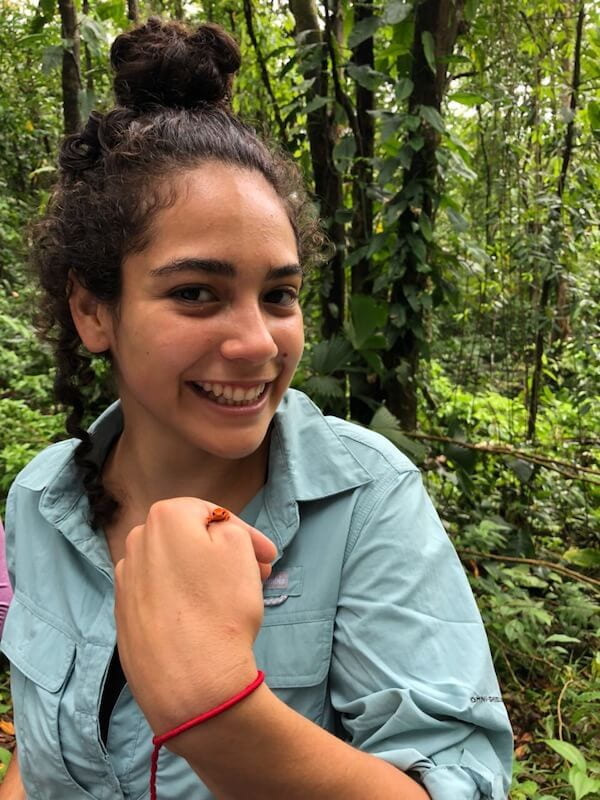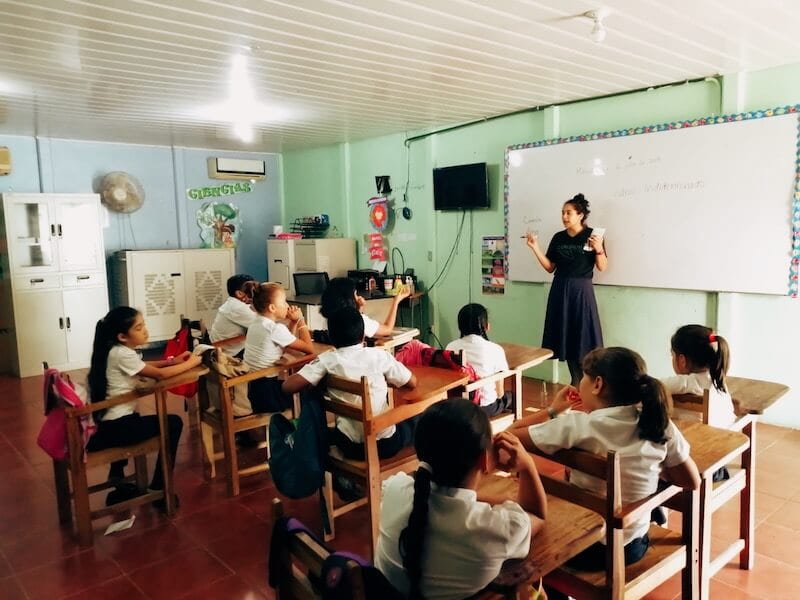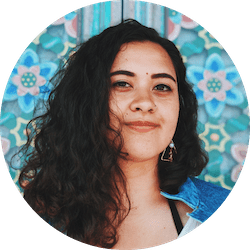Camila Rojas’ 19, an Environmental Science and Policy alumna, recently had her research published about tourism management, Protected area entry fee and governance quality, which resulted from her study abroad experience in Panama. Camila is currently working at a research station in Costa Rica and partnering with local non-profit organizations. To find out more about her research and career path, Office of Sustainability Digital Media Intern Lorna Probasco ’20 caught up with Camila.
Your recent publication stems from research you performed during a study abroad program with the School of Field Studies. How did you find it and what made you join?
I found my study abroad program through the Global Engagement Office at St. Edward’s, it looked like the perfect program for me given that it provided equal time in the classroom and in the field. I was able to attend thanks to several different scholarships offered by the School of Field Studies (SFS) and St. Edward’s. I was also a recipient of the Gilman Scholarship, which aims to help underrepresented students gain experiences abroad.
I studied in Bocas del Toro, Panama at an SFS center focused on Tropical Island Biodiversity Studies. I was really lucky to find an interdisciplinary program where I learned about terrestrial and marine ecology and the relationship between humans and tropical ecosystems. The last month of this semester-long program is dedicated to directed research under one of the professor’s guidance. During this time, we developed research methods and conducted field-based research as a team.
Did you intend to use your research for publication? Would you give me a brief summary of your publication and more specifically, your part in it?
At the time we were mostly focused on executing our research project and being able to show the results to the local community and government of Bocas del Toro, however, our professor always encouraged us to conduct publishable research.
The study looks at how entrance fees may impact the governance quality of Marine Protected Areas. We conducted the study at the local Marine Protected Area in Bocas which is a critical site for nesting turtles and includes different ecosystems such as coral reefs, rain forests, and mangrove islands. The results from this study contain important implications for conservation in tropical coastal areas and the effectiveness of protected areas in accomplishing their goals to protect important ecosystems while also contributing to the local socio-economic well being.
During data collection, I worked on the qualitative portion of the study, which included interviewing different groups of stakeholders such as government officials, park rangers, and tour operators. When we decided to continue working on the project towards publication my professor Leon Mach and my two colleagues Carly Winner and Melany Klemond worked as a team to make the paper publishable. This study was also presented at the National Environment Recreation Research Symposium last April.
How did your time at St. Edward’s shape your career and goals?
The focus St. Edward’s puts on social justice issues really shaped my views on environmentalism and how to approach environmental issues in a way that takes everybody into account. Additionally, the university’s push for students and faculty to gain experiences abroad and to learn about different cultures around the world opened my mind to a global view on environmental issues. During my time at St. Edward’s I was encouraged to use a social justice lens when making decisions about my career goals.



